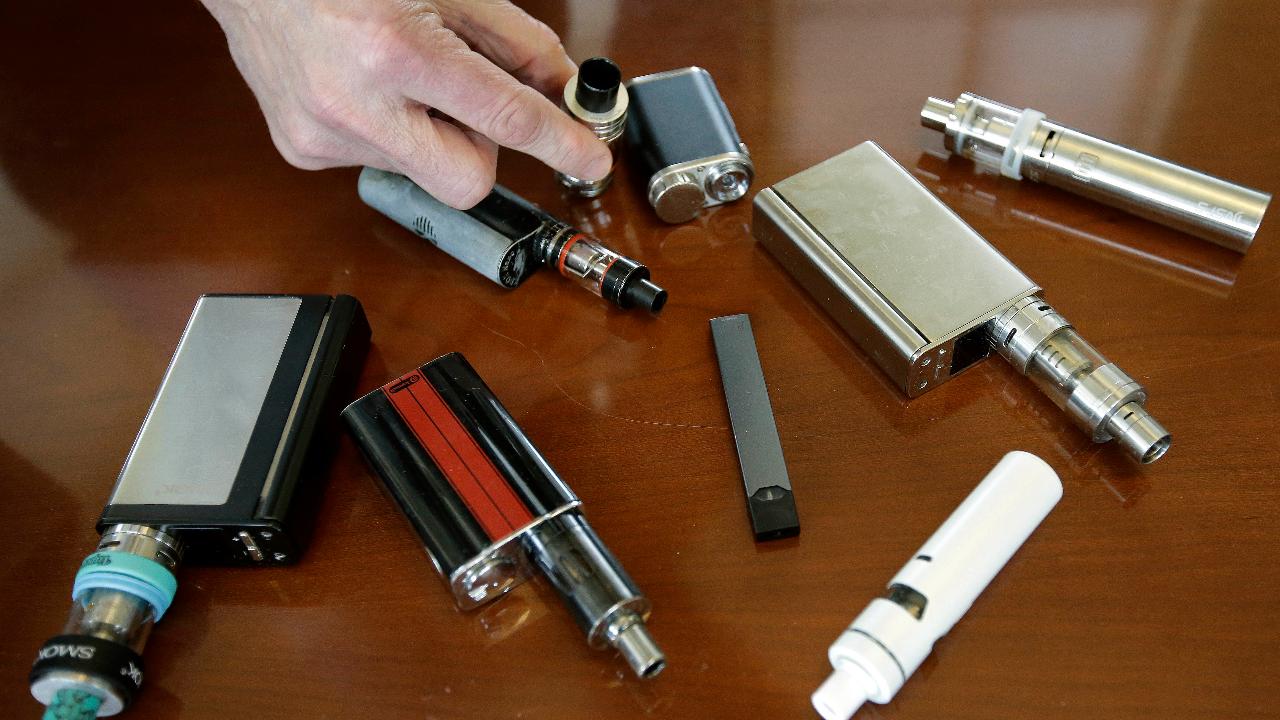FDA crackdown on e-cigs could boost big tobacco
Health officials in the U.S. took a nearly unprecedented step this week toward curbing use of e-cigarettes among young people, restricting sales of kid-friendly flavors in convenience stores and gas station in hopes of fighting what they describe as an “epidemic” of youth vaping.
One unlikely victor? Tobacco companies, who – according to experts – may have scored a big win in the most aggressive crackdown on smoking in more than a decade.
“Anything that reduces the sales of e-cigarettes is likely to increase the sales of cigarettes,” said Kenneth Warner, a professor emeritus at the University of Michigan’s school of public health.
The proposed measures, announced on Thursday by the U.S. Food and Drug Administration, are intended to reduce smoking among kids, who tend to prefer menthol cigarettes and flavored vaping products, according to government data. A study released on Thursday found that e-cigarette use among high school students has risen 77 percent since 2017, while cigarette smoking continues to decline.
This year, cigarette smoking in the U.S. hit a new low -- only about 14 percent of Americans older than 18 smoked within the last year, compared to 40 percent in 1965, according to the Centers for Disease Control -- but experts have been unable to connect the dots between that and the rise of vaping.
Although e-cigarettes market themselves as a cigarette alternative, companies are also quick to say it doesn’t help people quit nicotine altogether. A CDC report found the majority of e-cigarette users also smoke conventional cigarettes -- which could mean that tobacco companies have been losing out on part of the market.
“We have found flavors help adult smokers switch to vaping, and limiting flavor choice could increase the risk of adult vapers returning to combustible tobacco products,” said James Campbell, a spokesperson for Fontem Ventures, the company that produces Blue e-cigs and a subsidiary of tobacco company Imperial Brands PLC. He declined to comment further.
And while some tobacco companies -- like Imperial Brands -- produce e-cigarettes, the products constitute such a small portion of their profit that restricting sales will hardly have an effect, Warner said.
“The only moneymaker from the major companies point of view is cigarettes,” Warner said.
The most popular e-cigarette is Juul, which is its own separate company and dominates the market. It accounted for about 75 percent of the e-cigarette market share in the four-week period that ended in October, according to Nielsen data. Juul announced that it would restrict its own sales, one day prior to the FDA’s announcement.
Cigarette companies, including British American Tobacco and Altria, applauded the news about e-cigarettes, but urged the FDA to reconsider its proposed ban on menthol cigarettes. (Economic, financial and political might from tobacco companies would likely stall that proposal for years, according to Warner).
Officials from Altria and British American Tobacco declined to comment.




















